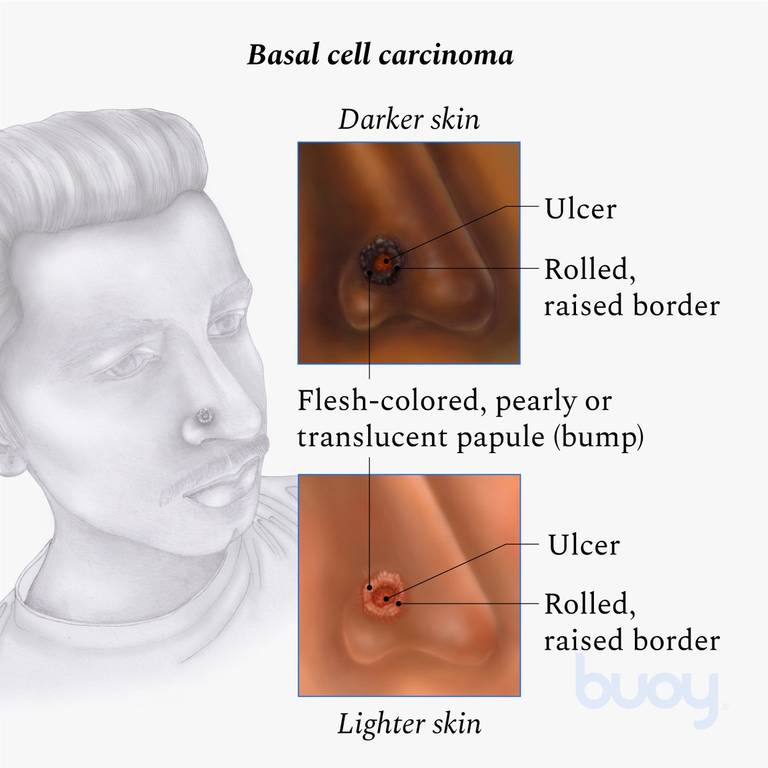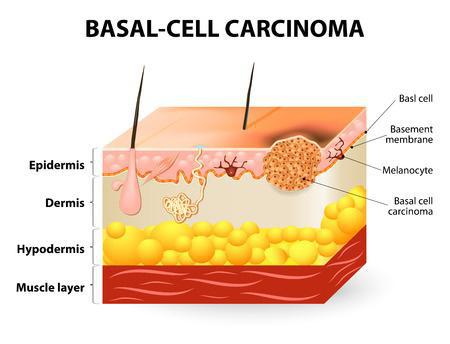
Basal cell carcinoma, a type of skin cancer, is a relatively rare disease. It usually begins as a small, shiny bump on the skin and doesn’t spread beyond the affected area. Most basal cell tumors will not spread to other parts of the body, but the presence of BCC near the eye, mouth, bones, or brain can be problematic. Because of its slow growth, basal cell tumors are not readily visible and will often take years to appear. If you are concerned, visit a doctor as soon as possible.
The condition is inherited. People with BCC syndrome tend to develop this type of cancer as children. If the condition is genetic, exposure to UV rays can increase the number of tumors. It is also common for BCC to recur after successful treatment. Patients with weak immune systems are more likely to develop other types of skin cancer, including melanoma. In addition, many other forms of skin cancer can be triggered by the same type of radiation, so it’s important to know what causes your BCC.
In general, basal cell carcinoma can be traced back to exposure to UV rays. It is usually inherited from a parent. Despite the fact that the syndrome is hereditary, it can be caused by sun exposure. Those who have a BCC diagnosis will be at a higher risk of developing skin cancers. In most cases, the tumors will be found on the body’s face.
The symptoms of BCC include a rash or sore that can grow into a solid tumor. Most patients with basal cell carcinoma have a recurrence within five years of diagnosis. In some cases, a doctor may recommend a surgery or radiation. The treatment will depend on the type of skin cancer. If caught early, basal cell cancers can be completely cured. It can move to nearby bones and tissues or even under the skin.
The most common type of basal cell cancer is found on the face, arms, and legs. Fortunately, it is largely curable if it is diagnosed early. However, there are several risk factors that make it difficult to diagnose. A skin cancer can spread to the neck, genital area, and other nearby tissues. Luckily, the condition is treatable and can be successfully treated if caught early. A dermatologist can detect the presence of BCC.

Although basal cell carcinoma is not a common skin cancer, it is a common type of cancer. Most cases are harmless, but they are very dangerous if spread. In addition to BCC, SCC is a type of BCC that can spread to other parts of the body. In severe cases, this type of skin cancer can even be fatal. It is also extremely unlikely that it will grow in people who have previously had it.
The most common form of BCC is macronodular in nature. It is the most common type of skin cancer, accounting for 90% of all cases. It is usually diagnosed in people with Fitzpatrick phototype I or II. In less than 4% of cases, tumors are located in the genital area. The metastasis rate is approximately 0.5%. If the condition is severe, it may spread to other parts of the body.
Because of the risk of recurrence, basal cell carcinoma is often diagnosed early. It has a low metastasis rate and is usually curable. If diagnosed early, basal cell carcinoma can be treated in a variety of ways. Surgical removal is usually necessary in some cases. Although rare, the cancer can recur. Although cancer is often curable, it is important to note that it can recur.
The most common type of basal cell carcinoma occurs on the face that is exposed to the sun daily, the site says https://www.carlostorre.org.mx/. It often appears as a bump on the skin and is usually pink, brown, or glossy black in color. Cancer is caused by chromosomal instability and is highly treatable. It can even be triggered by a transient ischemic attack. This is one of the most commonly diagnosed types of CCC.
